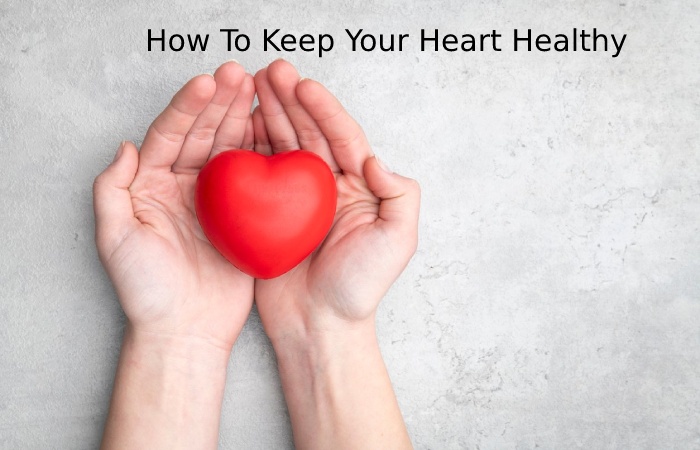Heart Healthy The human heart can be associated with a car engine: both are sources of energy that move bodies. The core acts as a pump that propels blood to organs, tissues, and cells in the body. The blood pumped by the heart supplies oxygen and nutrients to each cell and collects carbon dioxide and wastes produced by these cells. But if the blood flow to the heart slows or stops, or if the heartbeat is disturbed, it could be life-threatening. Like a car engine, how the heart treat will determine how long and in what manner.

“A lot of people take more care of their cars than their bodies,” says Dr. Denton A. Cooley, founder of the Texas Heart Institute. “They care about changing the oil, tune-ups regularly, and using the right gasoline. But when it comes to their own body, they feed it foods high in fat and salt, smoke, and don’t exercise regularly. Medical advances cannot eradicate cardiovascular disease. Good health depends in large part on people doing their part. ”
Cardiovascular sicknesses are those that affect the heart or blood vessels. Although steps have busy to educate people about their causes and prevent them, they remain the leading cause of death in the United States for both men and women. Cardiovascular disease kills one person every 39 seconds in the United States, or nearly 2,200 people a day, more than cancer, lowest chronic respiratory disease and accidents combined. New studies and treatment methods have reduced the number of deaths from cardiovascular disease, but not the number of people affected.
Table of Contents
Risk Factors And Lifestyle
Certain factors significantly influence a person’s chances of developing cardiovascular disease. These are the so-called “risk factors.” can control Some risk factors; others cannot.
“Although it is not possible to control risk factors such as sex, age, and heredity, it is possible to modify the risk factors related to lifestyle, to prevent or delay the ‘onset of cardiovascular disease, “he explains. Dr. Cooley. “Medical studies show that cardiovascular risk can be reduced with a diet low in fat, salt, and cholesterol, by not consuming any tobacco, by exercising at least three times a week, by maintaining weight health and lowering blood pressure. ”
Exercise
Exercise, or lack of exercise, plays an essential role in our health. Studies show that we need to do aerobic exercise (like brisk walking, jogging, or cycling) at least three times a week for 30 minutes to strengthen the heart. What’s more, medical studies show that short periods of physical exercise that total up to 30 minutes per day are as beneficial to health as 30 minutes of continuous activity.
“One of the best effects we can do to improve health is to eat low-fat foods and exercise regularly,” says Dr. Cooley. “Exercise burns calories, reduces appetite, blood pressure, and stress, and increases HDL (‘good cholesterol’) levels. It also improves the figure and makes us feel better. It’s almost too simple.
Diet
It is also possible to reduce cardiovascular risk with just a few innovative changes in your diet. Heart-healthy habits include limiting your daily salt intake to less than 2,300 milligrams of sodium. (People with high blood pressure may need to restrict their salt intake even further, to around 1,500 milligrams per day.)
The diet should consist mainly of fruits, vegetables, grains, lean meats, and fish. It is advisable to reduce the consumption of fat (incredibly saturated fat) and cholesterol (fatty red meats, whole milk, whole milk cheeses, eggs, cream dishes, and high fat desserts).
“You can reduce your blood cholesterol level by 5-10% by eating a diet that is healthy for the heart – that is, by eating more dietary fiber and less fat and cholesterol,” says Dr. Cooley. . “When we eat foods high in fiber, we feel full and eat fewer foods high in calories, fat, and cholesterol.”
Alcohol Consumption
Alcohol consumption also affects the heart. Medical studies show that consuming a moderate amount of alcohol protects against cardiovascular disease and heart attacks. According to experts, medium drinking averages one to two drinks per day for men and women. A drink defined as 1.5 fluid ounces (44 ml) of spirits having an alcoholic strength of 40 ° (80 degrees) (such as American or Scotch whiskey, vodka, gin, etc.), one fluid ounce ( 30 ml) of spirits, with an alcoholic strength of 50 ° (100 degrees), four fluid ounces (118 ml) of wine or 12 fluid ounces (355 ml) of beer. But moderate excessive alcohol consumption can lead to heart problems such as high blood pressure, stroke, irregular heartbeat, and cardiomyopathy (disease of the heart muscle). In addition, a typical drink contains between 100 and 200 calories. Calories from alcohol often increase body fat, which can increase cardiovascular risk. If you don’t drink, don’t start. If you drink alcoholic beverages, do so in moderation.
Stress
Stress is another factor that can affect the heart. People with cardiovascular disease often report heart pain during emotionally stressful situations. You are also more likely to have a heart attack during times of stress because your heart races and your blood weight increases. When this happens, the heart wants more oxygen. Stress can also damage arteries due to increased hormone production and increased blood flow during the stress response. As the walls of the arteries heal, they thicken, making it easier to build up plaque, which narrows the artery. Researchers believe stress can cause worse heart disease.
The Position Of Being Aware Of Your Health
“Most of us consider ourselves to be healthy if we don’t have symptoms of illness. However, sometimes the first noticeable symptom of cardiovascular disease is a heart attack,” says Dr. Cooley. “When the symptoms start to appear, the damage is already done. It is essential to know the cardiovascular risk factors and take the necessary measures to reduce them. By controlling one or more risk factors, you can add months and maybe years to your life.
